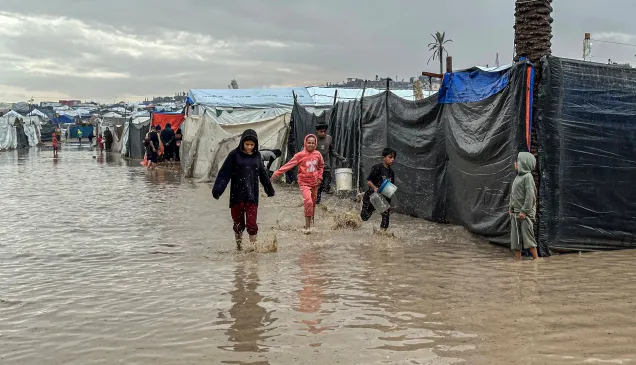Noura lives with her husband Mohammed and their six children in Shati refugee camp. The family cannot afford buying a new pipe to improve their connection to the public water system.
Water in Gaza: A crisis in slow motion
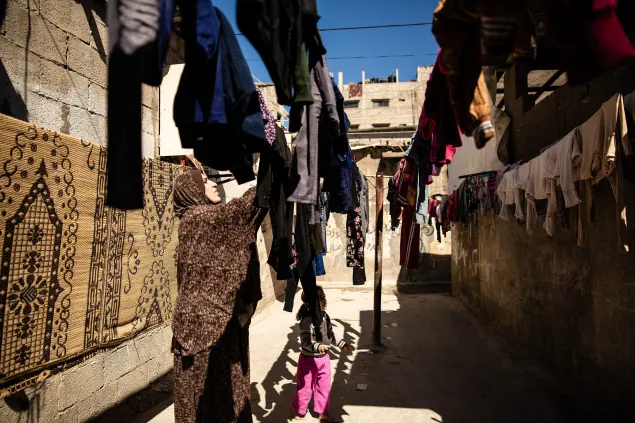
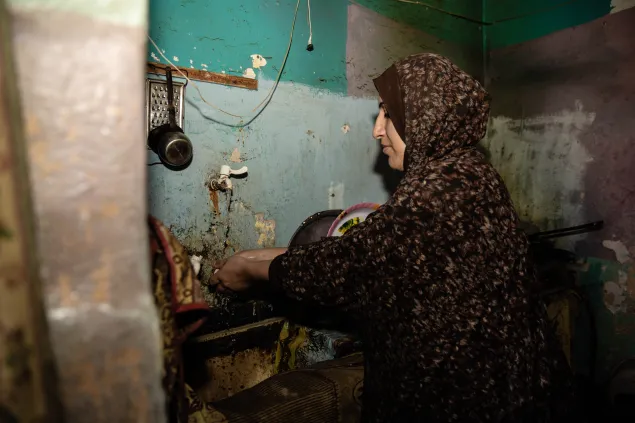
They receive running water once a week and manage to fill a 500 litres tank. The pipe water is so salty it can only be used for cleaning and laundry.
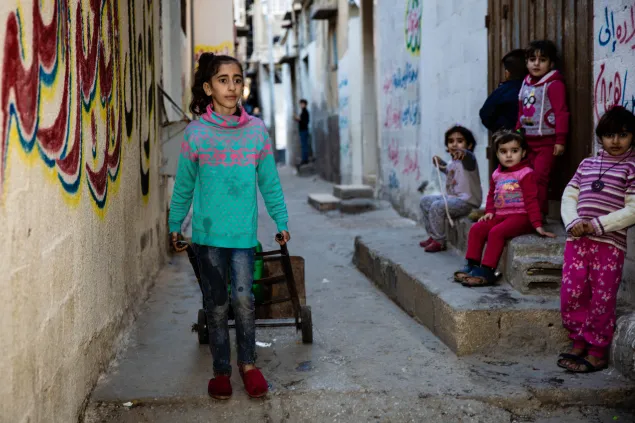
Diana is 13 years old. Every day, after school, she and her younger brother Moussa, go to a nearby mosque to bring clean water for the family.
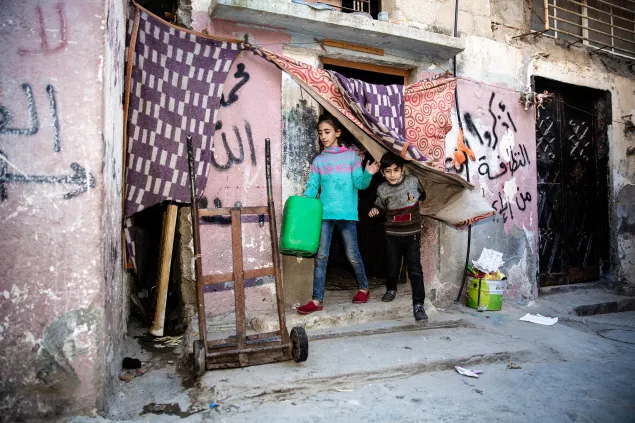
Many people buy drinking water from private vendors but Diana’s family cannot afford it. Some residents of Gaza spend as much as a third of their income on water.
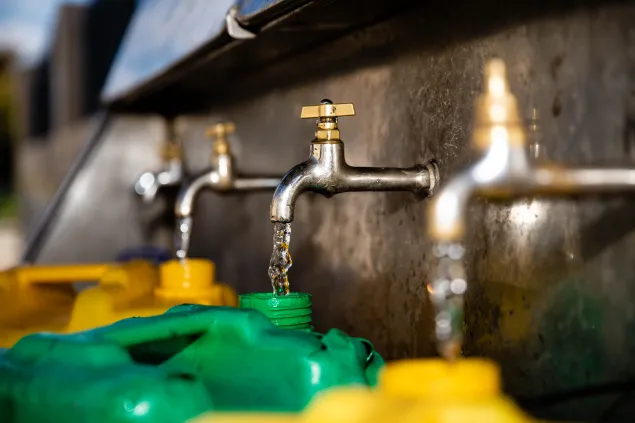
According to a study, more than a quarter of all reported disease in Gaza is caused by poor water quality and access. If present trends continue, the grim predictions of a water-related public health crisis in a densely populated urban area could turn into a tragic reality.
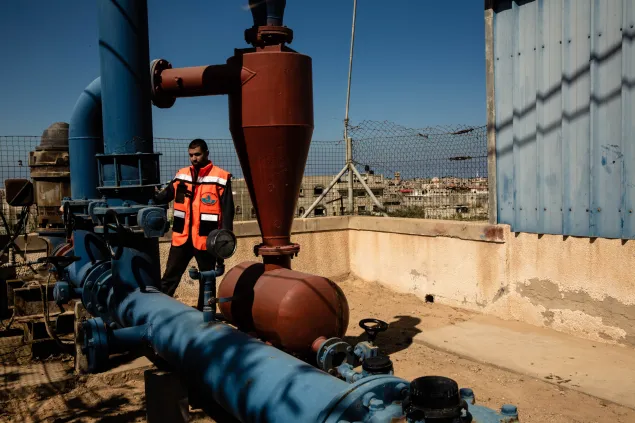
A public well operator in Rafah area.
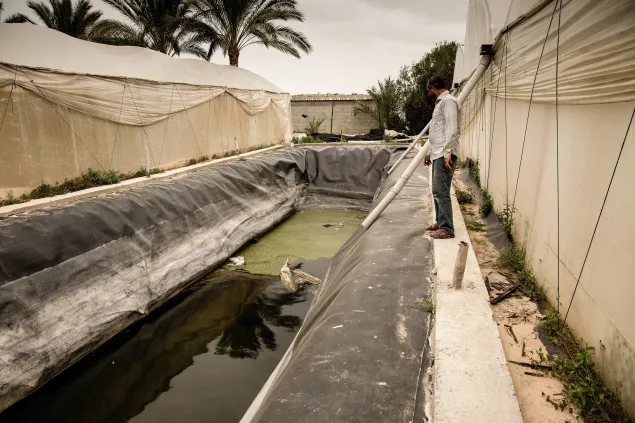
Poor quality and high salinity of water affects agricultural production. Some of the traditional crops, like cucumbers and watermelons, require high quantity of fresh water and now can only be sustained due to the rain water harvesting. In order to compensate for limited quantity and poor quality of the available agricultural land, farmers often resort to excessive use of chemical pesticides, which contributes to the pollution of water sources.
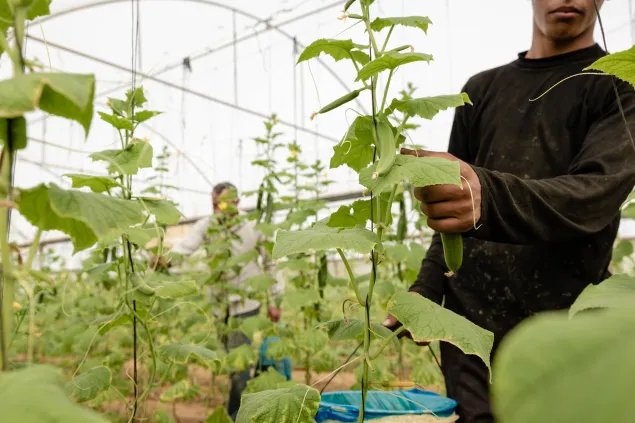
Agricultural activities consume around 60-65% of the water supply in Gaza, according to the World Bank. There are more than 4,600 agricultural wells in Gaza – almost half of them were drilled without supervision or regulation.
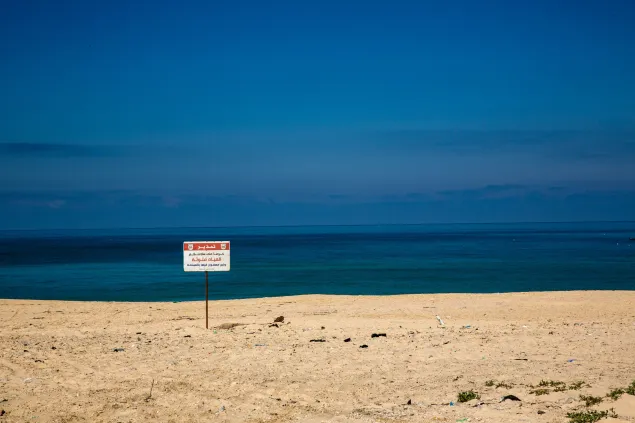
The sea is the centre of life in Gaza. The fishing industry plays an important part in its economy. The sea is the only gateway where the impoverished people, confined to the tiny strip of land and always afraid that another war will break out, come for pleasure.
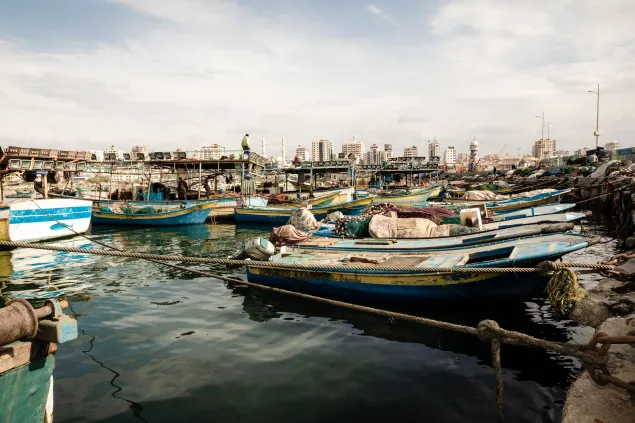
Because of lack of electricity and ineffective sanitation, more than 108,000 cubic meters of barely treated sewage – equivalent to 43 Olympic-size swimming pools – are flowing daily from Gaza into the Mediterranean Sea, according to a study.
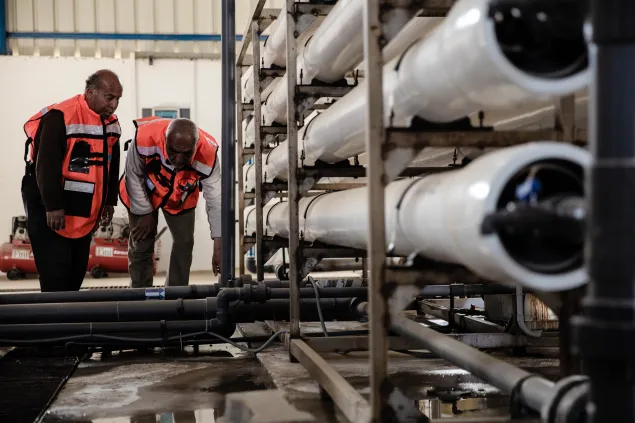
The water treatment plant in Rafah area cannot work in full capacity because of the limited electricity supply. One of its pipes is leaking. The leak cannot be repaired due to the lack of materials. Severe restriction on import of goods into Gaza affects water and sanitation infrastructure.
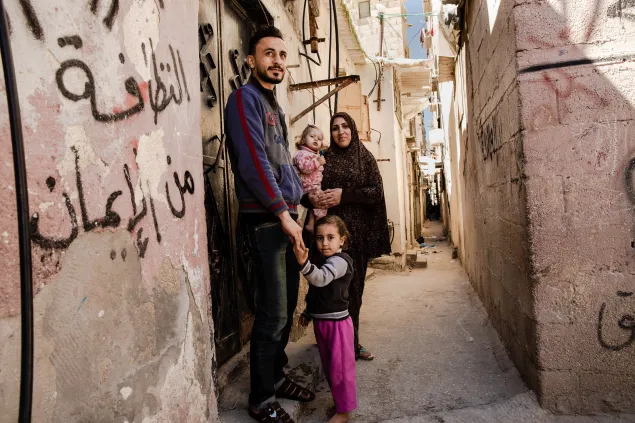
The ICRC supports water authorities in Gaza in improving and repairing essential infrastructure. We help vulnerable farmers with rainwater harvesting projects and improved seeds that resist salinity and require less irrigation.
Gaza became the centre of international media attention as violence escalates at the border with Israel. At the same time, another major crisis has also been unfolding, almost silently, away from the 24 hour news broadcasters.
Severe restrictions on movement of people and goods imposed by Israel and Egypt, internal Palestinian division, rapid population growth, deteriorating infrastructure and the chronic energy shortage have all contributed to the bleak situation the two million people living in the 365 square kilometres strip are facing.
The numbers are disheartening. Out of the running water available, 97% of it is unsuitable for human consumption because of sewage pollution or high salinity levels. Three times more water is pumped from the ground than the aquifer can naturally reproduce. Over 100 million litres of barely treated sewage is flowing daily into the Mediterranean Sea.



